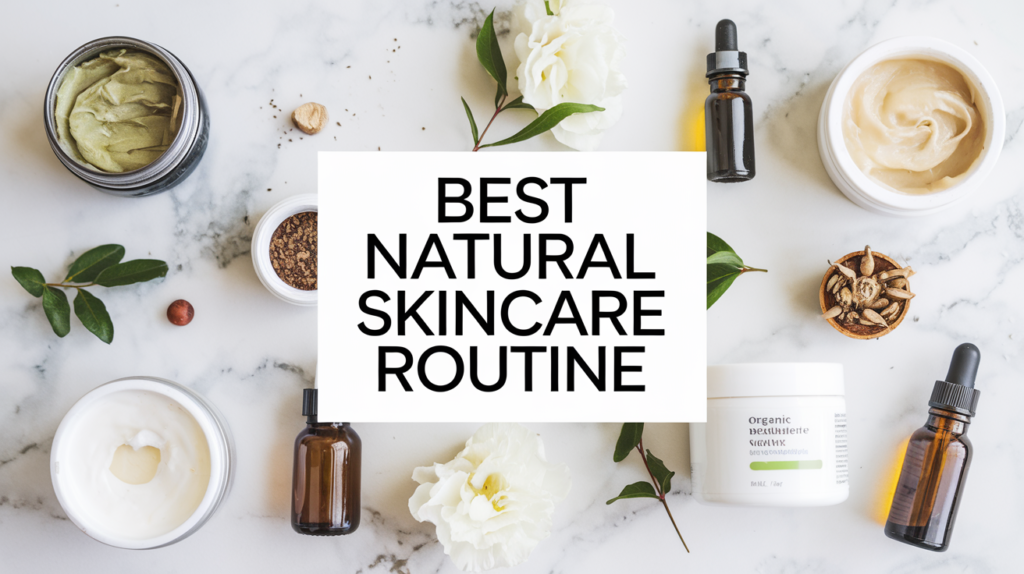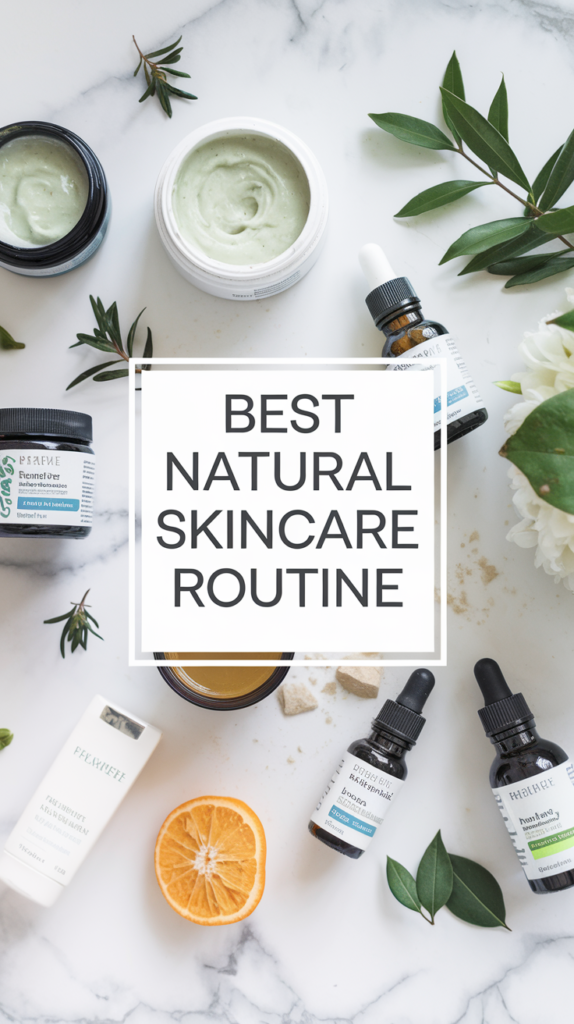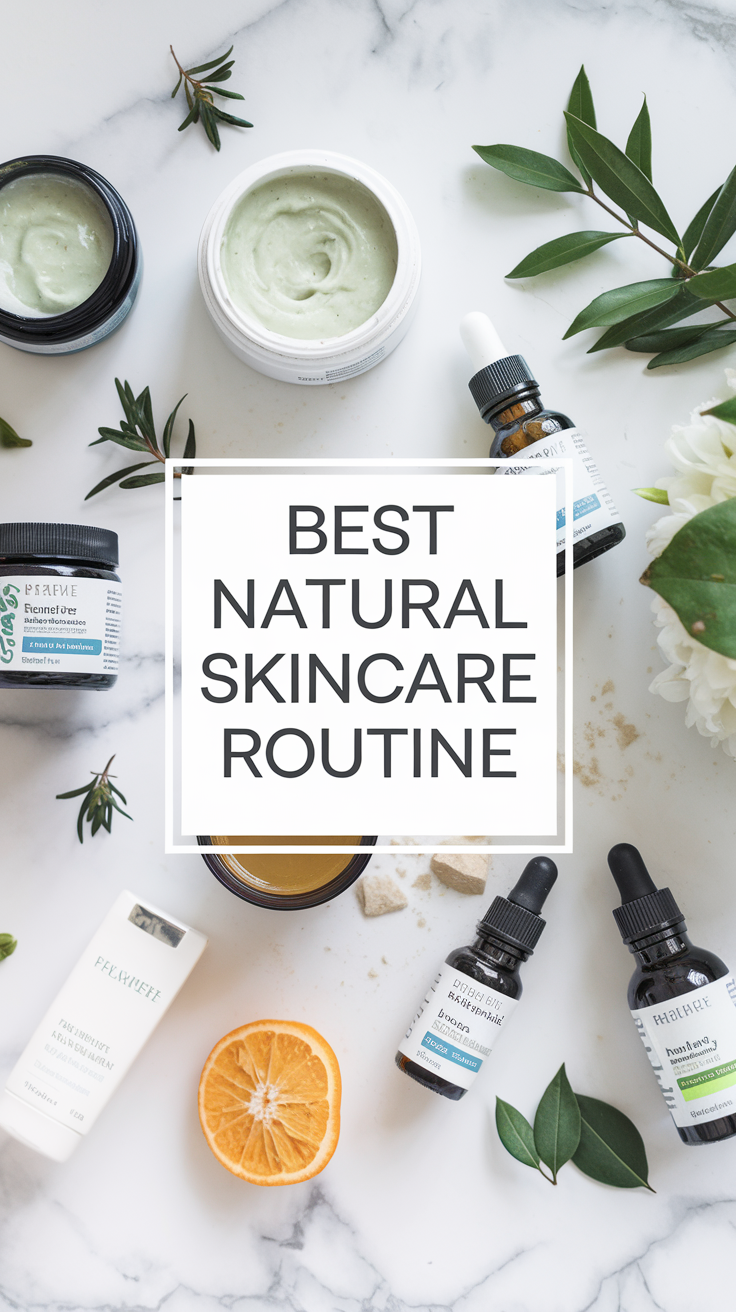
When I first started my journey into natural skincare, I was overwhelmed by skin reactions from conventional products filled with synthetic ingredients. Like many others, I found myself standing in front of the mirror, frustrated with redness and irritation that seemed to worsen with every expensive product I tried. That’s when I decided to take a step back and explore the gentle, effective world of natural skincare. Today, I’m excited to share a comprehensive, science-backed 7-step natural skincare routine that has transformed not only my skin but also the complexions of countless others who’ve made the switch to natural alternatives.
The Natural Skincare Revolution: Why It Matters
Natural skincare isn’t just a trend; it’s a return to time-tested ingredients that our ancestors used for centuries. The skin, being our largest organ, absorbs up to 60% of what we put on it. This makes the choice of skincare ingredients crucial for our overall health and well-being.
Benefits of Going Natural
- Fewer adverse reactions and sensitivities
- Environmental sustainability
- Biodegradable ingredients
- Rich in natural nutrients and antioxidants
- Suitable for most skin types
Step 1: Gentle Cleansing with Nature’s Best
The foundation of any skincare routine is proper cleansing. I learned this the hard way after years of using harsh cleansers that stripped my skin’s natural oils. Natural cleansing involves using ingredients that effectively remove dirt and impurities while maintaining your skin’s delicate pH balance.
Best Natural Cleansing Ingredients
| Ingredient | Benefits | Best For |
|---|---|---|
| Honey | Antibacterial, humectant | All skin types |
| Green Tea | Antioxidant, anti-inflammatory | Sensitive skin |
| Aloe Vera | Soothing, hydrating | Dry, irritated skin |
Step 2: Balance with Botanical Toners
After discovering the harsh effects of alcohol-based toners, I switched to botanical alternatives that restored my skin’s natural balance. Natural toners help maintain proper pH levels while providing additional nutrients and hydration.
DIY Natural Toner Recipes
- Rose water + apple cider vinegar (1:1 ratio)
- Green tea + chamomile infusion
- Cucumber + aloe vera juice blend
Step 3: Natural Exfoliation Techniques
Physical and chemical exfoliation doesn’t have to involve harsh synthetics. Nature provides numerous gentle yet effective exfoliating options.
| Exfoliant Type | Natural Options | Frequency |
|---|---|---|
| Physical | Ground oats, rice powder | 1-2x weekly |
| Enzymatic | Papaya, pineapple | 2-3x weekly |
| Chemical | Fruit acids, yogurt | 1-2x weekly |
Step 4: Power-Packed Natural Serums
Serums are concentrated powerhouses of nutrients. Natural alternatives can be just as effective as their synthetic counterparts, often with additional benefits.
Essential Oils for Different Skin Concerns
- Tea Tree: Acne and blemishes
- Rosehip: Anti-aging and scarring
- Frankincense: Fine lines and inflammation
- Lavender: Soothing and balancing
Step 5: Earth’s Most Effective Moisturizers
Natural moisturizers work in harmony with your skin’s natural processes. They provide deep hydration without clogging pores or creating dependency.
Step 6: Natural Sun Protection Strategies
While natural ingredients can’t replace sunscreen entirely, they can boost your skin’s natural defense mechanisms and provide additional protection alongside mineral-based sunscreens.
Step 7: Nighttime Repair and Renewal
The night is when your skin does its most intensive repair work. Supporting this process with natural ingredients can enhance recovery and regeneration.
Embracing Natural Skincare
Transitioning to a natural skincare routine is a journey that requires patience and understanding of your skin’s unique needs. The results may not be instant, but they are often more sustainable and beneficial in the long run. Remember, what works for one person may not work for another, so listen to your skin and adjust accordingly.
Key Takeaways
- Natural skincare is effective when used consistently and properly
- Always patch test new ingredients, even natural ones
- Quality matters more than quantity in natural skincare
- Seasonal adjustments are necessary for optimal results
- Combine internal and external care for best results
Frequently Asked Questions
How long does it take to see results with natural skincare?
Typically, you can expect to see initial improvements within 2-4 weeks, with more significant results appearing after 8-12 weeks of consistent use.
Can natural skincare help with acne?
Yes, many natural ingredients like tea tree oil, honey, and aloe vera have proven antimicrobial and anti-inflammatory properties that can help manage acne effectively.
Is natural skincare suitable for sensitive skin?
Natural skincare can be excellent for sensitive skin, but it’s essential to patch test and introduce new ingredients gradually.
How do I store natural skincare products?
Store most natural products in a cool, dark place. Some may require refrigeration, especially if they don’t contain preservatives.
Can I mix different natural ingredients?
While many natural ingredients work well together, it’s important to research compatibility and avoid mixing certain active ingredients that might react with each other.
Are natural preservatives effective?
Natural preservatives like grapefruit seed extract and vitamin E can be effective, but products may have a shorter shelf life than those with synthetic preservatives.
How often should I exfoliate with natural products?
Start with once weekly and adjust based on your skin’s response, never exceeding 2-3 times per week.
Can natural skincare replace medical treatments?
While natural skincare can be very effective, it shouldn’t replace prescribed medical treatments without consulting a healthcare provider.
What’s the best way to transition to natural skincare?
Gradually replace products one at a time, starting with those that stay on your skin the longest, like moisturizers and serums.
Are expensive natural products better than affordable ones?
Price doesn’t always indicate quality in natural skincare. Look for products with high-quality ingredients and proper formulation, regardless of price point.


